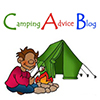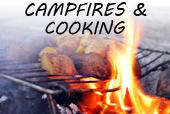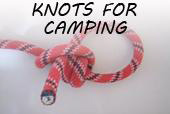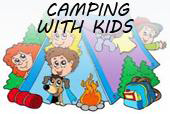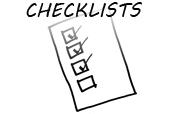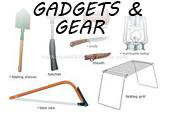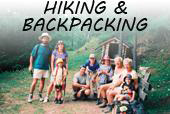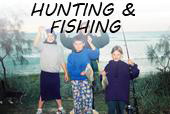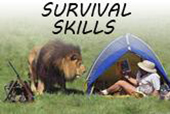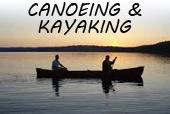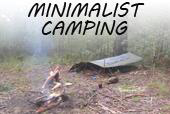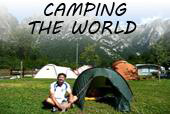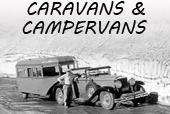Do you thrive in the outdoors? Do you love camping? Then buying a camping tent is an absolute must! Make your next camping trip more exciting, safe, comfortable and memorable with the right tent. Here is a guide to help you choose the perfect tent.
What type of tent best suits your needs?
You should consider factors such as cost, weight, space, shape, versatility and storage before buying a tent. It is important to prioritize these features based on your camping requirements.
How are tents classified?
Tents are classified according to usage, design, season and fabric.
Tents by Usage:
Tents should be easy to pitch, spacious and lightweight. Army tents are sturdy in design and are used for sleeping accommodations and general storage. Beach tents with a UV protective nylon coating provides maximum protection from the sun when camping on the sand. Cabin tents and camping tents are perfect for families or teams. These tents have plenty of space and sufficient headroom to allow you to stand. There are also canopy tents, castle tents, trailer tents and more.
Tents by Type:
The design your camping equipment is critical when it comes to selecting the right one. Dome tents and folding tents are lightweight and freestanding. The dome tent is hexagonal in shape, ideal to withstand adverse weather conditions. The A-frame style tent resembles the alphabet A and works fine on solid or concrete surfaces. It eliminates the need of poles and provides a lot of open room. The single hoop tent belongs to the A-frame family. It features a single hoop in the center which makes it easier to get in and out of the tent. The geodesic tent has a sturdy structure, the maximum amount of headroom and abundant usable floor space due to its geometric shape. Pop-up tents are economical and lightweight shelters that can be set up in a few seconds. These tents are ideal for backyard picnics and parties, sporting events and exhibitions. The screen house tent is a large tent with transparent side screens. They allow you to view everything going on outside though you are comfortably sitting inside. A tunnel tent is narrow and linear in design, constructed with two or more hoops along its length and performs excellently in severe weather conditions.
Tents by Season:
When will you be doing your camping and hiking? It is important to consider the type of outdoor adverturer you are and the tent you need for a particular season. Two-season or summer tents are lightweight and have a good ventilation system. Most of them have a vestibule, a fully enclosed canopy for storage purposes. The versatile three-season tents are sturdy, waterproof, windproof and can be used in any kind of weather. Four-season tents are specifically designed to withstand severe winter conditions and come with supplementary poles to strengthen their walls. These expensive tents are becoming more popular in the outdoor sports industry since they are light, easy to use and more durable than other tents.
Tents by Fabric:
The type of fabric or tarp used is responsible for the resistance offered by a tent. Ascertain your camping requirements and choose accordingly. The nylon fabric used in dome tents ensures water resistance, flexibility and durability. It also makes then tent light in weight. If you like to camp for days or weeks at a time, then polyester tents are your best option. They have better UV resistance, superior deterioration resistance and greater durability. Cotton canvas tents are made of rough weave material and tend to be heavy. Though the tent is not waterproof, it is inexpensive, very durable and can be swiftly erected. The UV-Tex 5 tent is cooler, stronger, leak resistant and much more durable than the nylon or canvas tent. You should but a tent that is waterproof and perforation resistant. If your budget can afford it, select a model that can withstand extreme weather conditions.
What are the most important features of a quality tent?
Check for the following attributes before choosing a tent.
Strength:
The best tent should be constructed using the finest components available. These components should include good fabrics, frames, zippers, buckles and coatings to give the tent a sturdy structure.
Rain and Wind Protection:
Tents should be able to resist extreme weather conditions and provide its inhabitants with protection against wind and rain. The A-frame, dome and tunnel shaped tents best suit this demand.
Ventilation and Condensation:
A good tent should be made with coated fabric doors and have awnings over the entrance to provide ventilation and minimize condensation.
Easy Set-up:
A tent should be easy to erect. Color coding is helpful in setting up a tent, as it makes it easier to identify the front, sides and back.
Size and Weight:
A tents weight includes the weight of the tent body, rain fly, poles and stuff-sack. The size and weight of the tent you need should be based on planned activities, number of campers, amount of equipment that you bring along and weather.
What are the other tent components that need to be considered while choosing a tent?
Besides a suitable size, style, and weight, you need to check out the following components.
Poles:
You can choose from aluminum, fiberglass, carbon, or tubular fiberglass poles for a sturdy tent. Lightweight aluminum poles provide protection from UV radiation while fiberglass poles are highly durable.
Seams:
Check for high level seams to prevent water entry.
The Floor:
The flooring material should have a waterproof polyurethane coat to resist wear and tear.
Vestibules:
Vestibules offer an extended dry area to store packs, boots and other camping equipment. They maximize storage and living space without adding weight to the tent.
Internal Storage Pouches:
The internal walls of the tent should have pockets or loops overhead to store lightweight items and suspend lights and hanging gear.
Is it possible to extend the lifespan of a tent?
Follow these steps to ensure that your camping tent lasts longer:
Never roll up or pack away a wet tent or swag.
Always store your tent in a dry place.
Avoid spraying insecticide, hair spray and other aerosols inside or near your tent. These sprays may be harmful to the fabric and cause leakage.
Wash the tent with a sponge and mild soap, such as ivory flakes. Never use a washing machine or detergent. They can cause damage to the seams and coating.
If the poles become exposed to salt air, wash them properly in fresh water and air-dry to prevent corrosion.
Use battery operated instruments inside the tent.
Avoid any fuel-powered devices.
Do not roll up the poles and pegs with the tent. Keep them separate.
